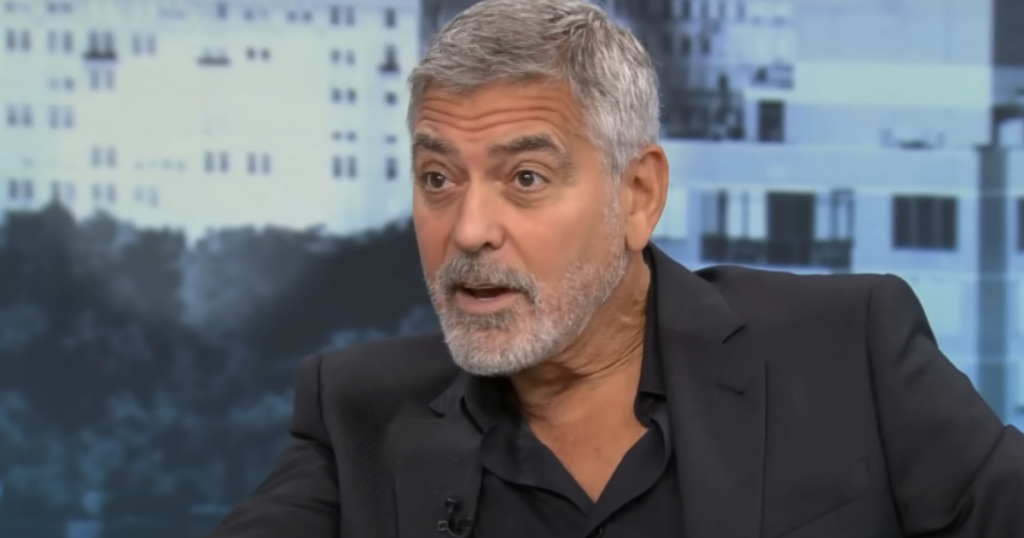In the aftermath of the recent election, actor George Clooney has found himself under fire from various segments of the Democratic Party, facing backlash for his outspoken criticism of President Joe Biden and his call for Biden to withdraw from the 2024 presidential race. Clooney’s controversial op-ed published in the New York Times in July explicitly urged the 81-year-old president to step aside in light of his perceived poor performance during a debate in June. The actor’s comments were made within a larger context of Democrats expressing their disenchantment concerning Biden’s ability to secure a win in the upcoming election. As a result, rather than being celebrated for his boldness, Clooney now finds himself as a focal point for anger among disappointed Democrats.
The fallout from Clooney’s editorial reached a peak after Vice President Kamala Harris suffered a significant defeat in the election, widening the rift between the actor and his fanbase. Reports from various news outlets, such as Breitbart News, have highlighted the discontent directed toward Clooney by supporters who feel that his actions directly contributed to Biden’s withdrawal and ultimately to Harris’ failure in the race against former President Donald Trump. Liberal commentators and activists have characterized Clooney’s intervention as detrimental, arguing that his vocal opposition to Biden has inadvertently paved the way for a Republican resurgence. Many Democrats now express an urgent need to reassess their strategy and candidates, casting Clooney in a role they had not anticipated—a prominent figure whose advice proved to be fateful and misguided.
Clooney, in his op-ed, claimed that a sentiment echoed by many lawmakers indicated that Biden was not the candidate who could effectively secure a victory against Trump in November. He positioned his call for a new candidate as necessary for the Democrats’ success, stating, “This isn’t only my opinion; this is the opinion of every senator and Congress member and governor who I’ve spoken with in private.” His assessment of Biden was stark, portraying the president as a liability rather than an asset, which he thought warranted a serious discussion among party leaders about potential replacements. This public admission of doubt about Biden’s capabilities, fueled by Clooney’s celebrity status, resonated poorly with core Democratic voters, many of whom now believe that the actor’s influence catalyzed a chain of events leading to Harris’s electoral loss.
Following Biden’s announcement to step aside, Clooney hailed the decision, praising the president for his “selflessness.” However, this endorsement is now being scrutinized as many party loyalists view Clooney’s advocacy as a poorly timed misjudgment that ultimately alienated a strong base of supporters. Many on social media have specifically pointed fingers at him, blaming his intervention for creating a vacuum that Harris could not fill with her hastily initiated campaign. With the Democratic Party facing criticism from within its ranks as well as potential electoral consequences, Clooney has become a symbolic target of their collective frustration. His effort to influence party dynamics, rather than being seen as a noble gesture, has devolved into an emblem of blame in the eyes of disenfranchised voters.
As the political landscape shifts post-election, Clooney’s reputation among liberals appears to be undergoing a significant transformation. A wave of social media commentary from disappointed Democrats has branded him as an antagonist rather than the ally he intended to be. The sentiment expressed by voters echoes a shared feeling of betrayal, with many attributing their frustrations and discontent to Clooney’s perceived role in advocating for Biden’s exit. Emotion-laden tweets such as “It’s all George Clooney’s fault,” have proliferated, underscoring the extent of the backlash against him. Fellow Democrats, including prominent figures and everyday voters, lament that his nudging for Biden to step aside proved to be a historic blunder, one that may reverberate negatively for years to come.
In retrospect, Clooney’s initial intentions may have been to rally the party toward a more viable candidate; however, the entrance of a political reality dictated by public sentiment has shifted perceptions dramatically. The actor now faces a conundrum where his support for new leadership has left him alienated from those he aimed to empower. His situation is emblematic of a broader struggle within the Democratic Party to find cohesion and direction amidst turmoil. As party members grapple with their frustrations and search for accountability, Clooney’s op-ed will likely be framed as a pivotal moment in a narrative of electoral miscalculation, leading many to question the efficacy of celebrity opinions in political discourse.
In this rapidly evolving scenario, Clooney must navigate the fallout from his prior stance while reconciling with the anger of the very party he sought to fortify. The fallout affirms the consequential nature of public declarations in the arena of politics, where calls for change can unexpectedly fracture alliances and provoke unforeseen ramifications. His belief in promoting a different candidate may have stemmed from genuine concern for the Democratic cause, but the reality of election outcomes showcases how celebrity interventions need to be approached with caution—balancing advocacy with the intricate sensitivities of party loyalty and political alignment. Whether Clooney can reshape this narrative to regain the trust of Democratic voters remains uncertain as the party assesses its future path in the aftermath of a tumultuous election cycle.

